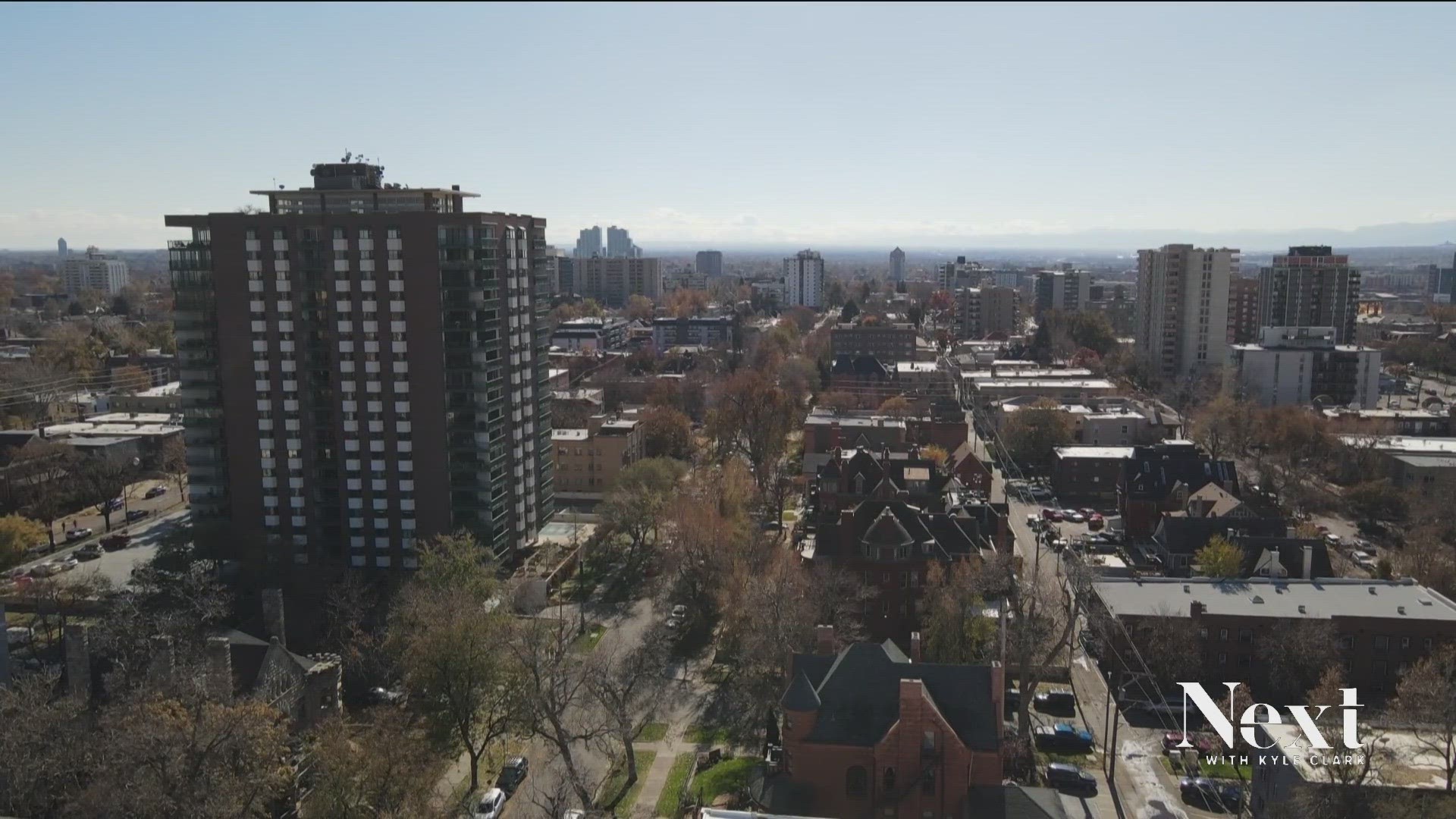DENVER — Even before the failure of Prop HH, several Next with Kyle Clark viewers wanted to know the answer to the same question.
Just because your property value went up 30, 40 or 50 percent, why are local governments entitled to 30, 40 or 50 percent budget increases?
That question came from Ruth, Larry, Tom, Pam and Wayne just to name a few.
“It goes back to a case-by-case situation of where your home might reside, and who's serving you,” Gini Pingenot, a former local government advisor, said.
Pingenot worked with local governments for two decades.
Local governments receive property tax dollars based on the number of mill levies each district sets. None of your property tax money goes to the state, yet state lawmakers are the ones trying to tweak the math to reduce the increase of your next property tax bill.
Your property tax dollars go to the local governments where you live: cities, counties, school districts and any number of 4,000 special taxing districts.
“Sometimes I like to think about this as in a typical property tax bill, roughly 60-to-70 percent of your mill levy will not lend itself to being modified. So, that means the remaining 30-to-40 percent is going to, perhaps, lend itself to modification,” Pingenot said.
For special districts to be able to determine the mill levies that will ultimately add up to your total property tax bill, they need to know if the state is going to make some of your property’s value tax-free or if they will lower the assessment rate used to determine your property’s taxable value.
“Local governments, the 4000-plus out there, are being asked to do a math equation for which they don't have a key variable to do the equation on,” Pingenot said. “Local governments must set their mill levy by December 15. That's five weeks from today. But in order to do that, you have to know what your total taxable value is going to be. And this piece, the total taxable value, is what will be the focus of the state legislature when they convene for the special session.”
On Thursday, Gov. Jared Polis (D) called the state legislature back to work for a special session that will begin on Nov. 17. The legislature normally meets for 120 days from early January until early May. The special session will likely include changes to the property tax math that special districts must know before they try to set their mills.
“As a local government, you're still in limbo land because you don't have a key piece that you need to determine what your mill levy is going to be,” Pingenot said.
Pingenot said expenses for those local governments cost a bit more than a family's expenses.
“Local governments don't function like your family budget does. They're purchasing concrete and steel to build roads and bridges. And they're chasing after the private sector on salaries and benefits in order to retain and attract some of the best employees that they can," Pingenot said.
Even if local governments wanted to lower their mill levies, they cannot do so until they know what the legislature will decide in the special session.
“Not all local governments are going to find themselves in the position where they can lower their mill levy. A good example would be schools,” Pingenot said.
The bulk of most people’s property taxes go to their local school district.
Some neighborhoods in Thornton that fund Adams 12 Schools see 62% of their property tax bills go to the school district.
Certain neighborhoods in the Douglas County School District see 48% of their property tax bill go to the school district.
Every neighborhood could be different based on the special taxing districts where you live.
For almost every school district, local property taxes do not provide enough money based on the dollar amount they are supposed to receive per pupil each year.
The state is supposed to backfill the difference. Next year will be the first year the state provides 100% backfill since 2009.
“I live here in Denver, and I have roughly 80 mills that I have to pay on my home," Pingenot said. "Well, 50 of those 80 mills is associated with the school system. And they are unlikely to reduce that. The other portion of my 80 mills is related to bonded indebtedness with the city of Denver, and they may not have a lot of room to maneuver.”
Smaller districts like fire protection districts, library districts and water and sanitation districts might have more flexibility. Though, the impact on your property tax bill would not necessarily be significant.
“Local governments have modified their mill levies downward in a temporary fashion so that they can make sure that the amount of revenue that they're bringing in corresponds with what they need to pay the bills of society and what the community is expecting of them,” Pingenot said.
SUGGESTED VIDEOS: Full Episodes of Next with Kyle Clark

